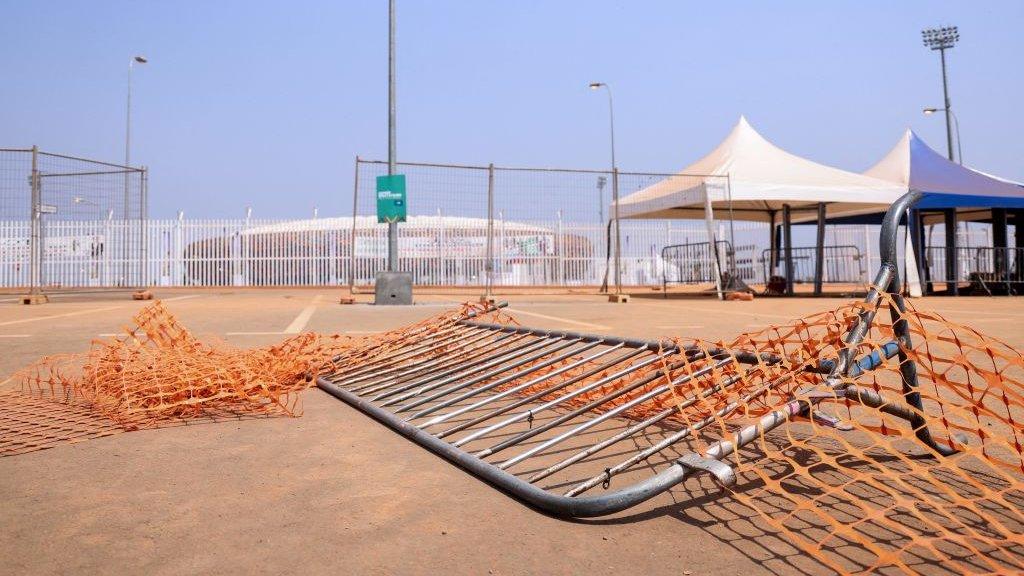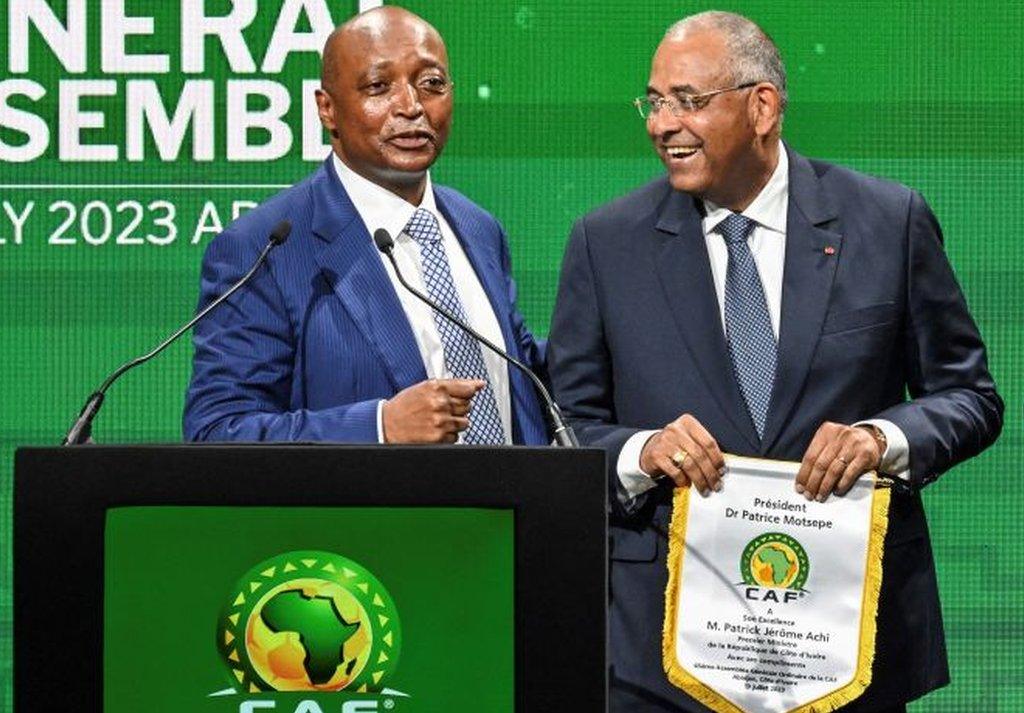Afcon 2023: Caf president pledges 'zero tolerance' approach to stadium risks
- Published

At least eight people died in a stampede outside the Olembe Stadium in Yaounde during the last Africa Cup of Nations in January 2022
The president of the Confederation of African Football (Caf) has said there will be a "zero tolerance" approach to ensuring stadiums are safe at the 2023 Africa Cup of Nations (Afcon), which kicks off in January.
Speaking at the draw for next year's tournament in Ivory Coast, Patrice Motsepe acknowledged "avoidable" mistakes had been made during the 2021 tournament in Cameroon, which witnessed a tragedy when at least eight people were killed in a crush outside Yaounde's Olembe Stadium.
"There's a huge amount of focus because the safety of our spectators is crucial," Motsepe told BBC Sport Africa.
"When families come to watch a football match, they have to be absolutely assured that, from a Caf perspective and our partners, we have done everything possible in line with global best practices to make sure that the facilities and the infrastructure are safe.
"There's zero tolerance."
Two test events will be held at the Felix Houphouet Boigny Stadium in Abidjan when Ivory Coast host friendlies against Morocco on Saturday and South Africa on Tuesday.
Olembe crush - 'mistakes were made'
The tragedy in January 2022 unfolded after a gate to the Olembe Stadium in Yaounde was opened as a result of a heavy build-up of spectators during a Nations Cup last-16 match between hosts Cameroon and Comoros.
The stadium was kept as the venue for the final, despite the fatal incident.
"Some mistakes were made, and some of those mistakes were avoidable," said Motsepe.
"We're very clear that the quality of infrastructure to host the top African competition has to be world class.
"What we're doing over the next few months is to make sure that the infrastructure in its totality is excellent."

Patrice Motsepe, the president of the Confederation of African Football (left), paid tribute to the work of Patrick Achi (right), who has been serving as prime minister of Ivory Coast
Motsepe added that the media had an "important" part to play in holding organisers to the highest standards.
"Part of the role of the media is to criticise us, to identify those areas where there are deficiencies and weaknesses," he said.
"That's why it's very, very important that we work together with the media so that they can help us identify some of the areas which, in your [media] view, require urgent attention.
"We've got a team of people that have been here for the last six months working on a day-to-day basis with the government."
Motsepe praised the "absolute commitment" of the key parties involved and the "excellent work" of Ivorian prime minister Patrick Achi to prepare for the delayed 2023 tournament.
Achi, who remains in temporary charge until the appointment of a new prime minister and government, says - with three months to go - preparation is key to ensuring the Ivorian stadia are safe.
"What we're doing right now is what you call 'test matches', which means whatever you will do, you want zero tolerance. So you want to test well in advance. Anything can happen. That's what we've been doing," Achi told BBC Sport Africa.
"We may find other things and solve them. But you have to have test matches - this is what is very different than what we've been doing so far.
"And we think that we'll get there right on time ready for a very, very, very, very big event," Achi added.
The hosts face Guinea-Bissau in the opening game on 13 January 2024.
The final will take place on Sunday, 11 February.